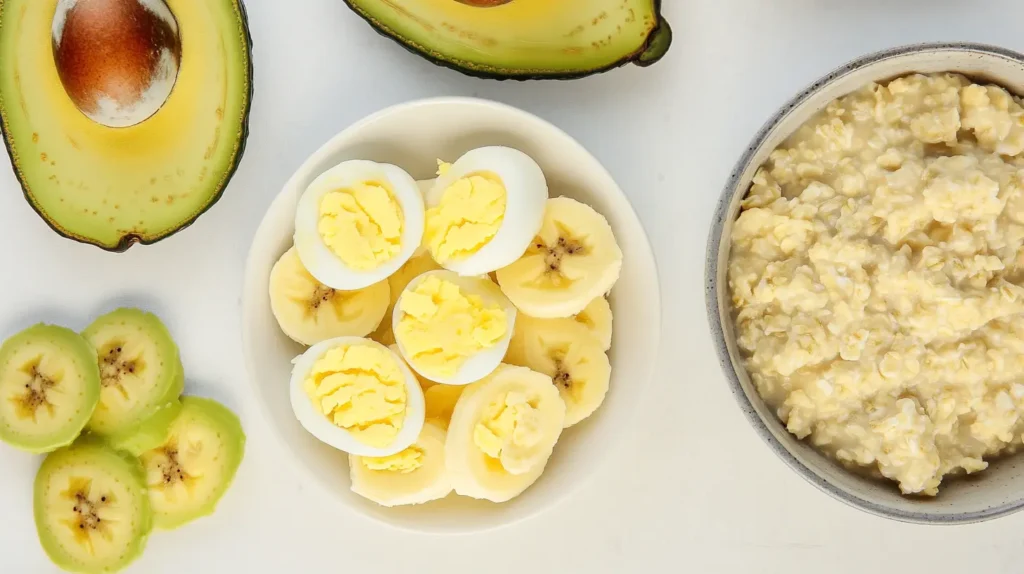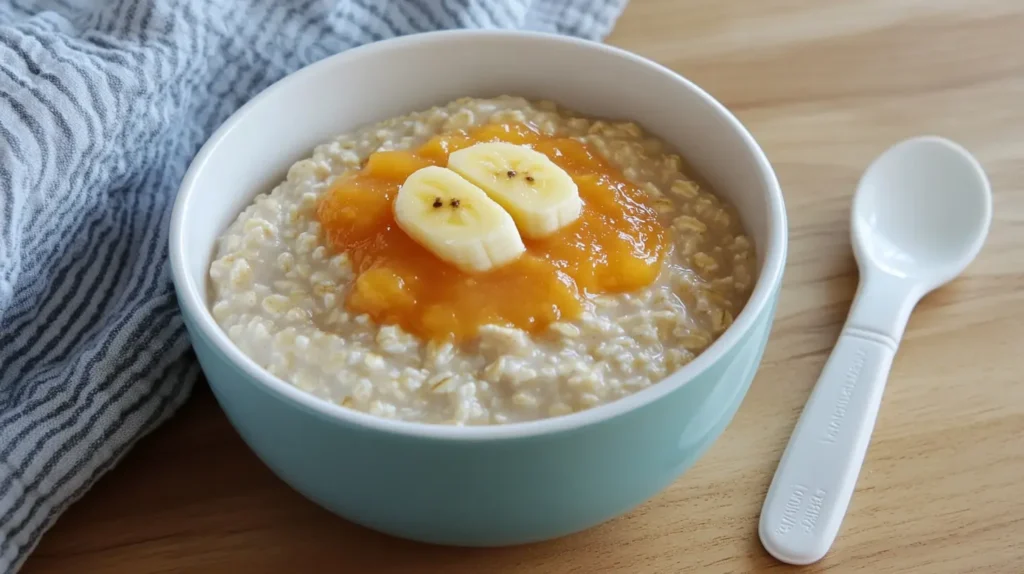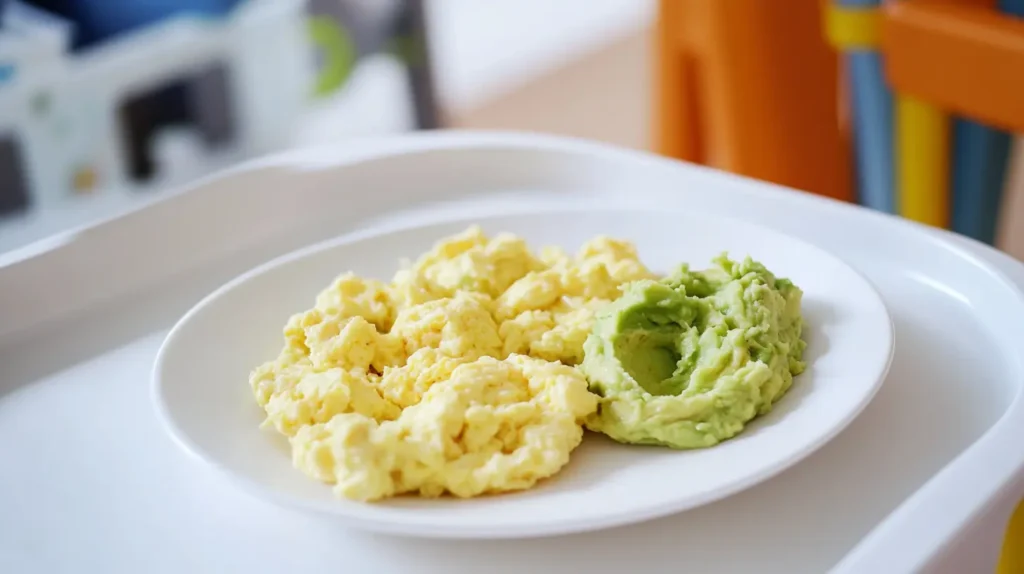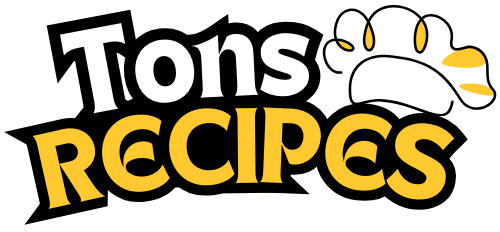Introduction
Starting your baby’s breakfast with nutritious, balanced meals is one of the best ways to support their growth and development. A healthy breakfast fuels their energy, aids brain development, and sets a positive tone for the rest of the day. But as a parent, you may wonder what the best options are for your little one’s first meal of the day.
In this guide, we’ll walk you through everything you need to know about baby’s breakfast—from key nutrients to simple, age-appropriate meal ideas and easy recipes. Whether you’re starting solids or looking for toddler-friendly breakfast options, we’ve got you covered. Let’s make mornings healthy, fun, and stress-free!
Table of contents
Nutritional Needs for Baby’s Breakfast
When it comes to preparing baby’s breakfast, it’s important to focus on foods that are rich in essential nutrients to support their growth and development. Babies need a balance of key nutrients to start the day strong and energized. Here’s a quick breakdown of what to include:

1. Protein
Protein is crucial for building and repairing tissues, as well as supporting muscle development. Great sources of protein for your baby include:
- Scrambled or mashed eggs
- Plain yogurt (full-fat)
- Soft-cooked beans or lentils
- Small portions of mashed cottage cheese
2. Healthy Fats
Healthy fats provide energy and are essential for brain development. Including healthy fats in your baby’s breakfast can ensure they stay full and satisfied. Some baby-friendly options are:
- Avocado (mashed or sliced)
- Nut butters (thinly spread and age-appropriate)
- Full-fat dairy like yogurt or milk (if your baby is over 12 months)
- Small amounts of olive oil or butter in cooking
3. Carbohydrates
Carbohydrates give babies the energy they need to stay active and explore their world. Opt for complex carbs that provide long-lasting energy, such as:
- Oats or oatmeal
- Soft-cooked whole-grain toast or pancakes
- Sweet potatoes (mashed or cubed)
- Fruits like bananas, apples, or pears (pureed or sliced, depending on age)
4. Vitamins and Minerals
Vitamins and minerals are vital for strengthening your baby’s immune system and overall health. Incorporate the following foods into breakfast:
- Leafy greens like spinach (cooked and blended into eggs or purees)
- Fresh fruits packed with vitamin C, such as strawberries and oranges
- Vegetables like carrots, peas, and zucchini (pureed or soft-cooked)
- Iron-rich options like fortified cereals or egg yolks
By including a mix of these nutrients, you can ensure that your baby’s breakfast is balanced, filling, and supports their healthy growth. Start small, focus on whole foods, and watch your little one enjoy a nutritious and delicious start to the day!
Age-Appropriate Breakfast Ideas
As babies grow, their nutritional needs and ability to eat different textures change. Here are some breakfast ideas tailored to your baby’s age:
6–8 Month-Olds
- Oatmeal Puree: Blend cooked oats with breast milk, formula, or water for a smooth, creamy texture. Add pureed banana or applesauce for extra flavor.
- Mashed Avocado: Serve soft, mashed avocado with a tiny sprinkle of cinnamon for variety.
- Fruit Puree: Offer smooth purees of fruits like pears, peaches, or mangos. You can mix them into baby yogurt for added protein.
- Scrambled Egg Yolk: Serve small portions of soft, scrambled egg yolks (without salt) to provide essential nutrients like iron.
9–12 Month-Olds
- Soft Banana Pancakes: Mix mashed banana, egg, and a little flour to make soft, baby-friendly pancakes.
- Yogurt with Soft Fruit: Serve full-fat plain yogurt with soft-cut strawberries, blueberries, or banana slices.
- Mini Scrambled Eggs: Offer small, bite-sized scrambled eggs with mashed avocado on the side.
- Whole-Grain Toast: Cut soft, whole-grain toast into strips and spread a thin layer of nut butter or mashed fruit.
Toddlers (12+ Months)
- Oatmeal with Toppings: Serve oatmeal topped with soft fruits, a drizzle of nut butter, or a sprinkle of chia seeds.
- Veggie Omelet: Make an omelet with finely chopped spinach, zucchini, or carrots for added nutrients.
- Mini Muffins: Bake healthy muffins using ingredients like banana, oats, and applesauce—perfect for little hands.
- Cheese and Fruit Plate: Offer cubes of mild cheese with soft fruits like melon, banana, or pear slices.
These breakfast ideas are easy to prepare, nutrient-packed, and tailored to your baby’s development stage. Feel free to mix and match to keep mealtime exciting and enjoyable!
Simple and Nutritious Recipes
Here are a few easy, healthy, and delicious recipes that are perfect for your baby’s breakfast. These recipes are nutrient-packed, quick to prepare, and tailored to support your little one’s growth and development.

1. Baby Oatmeal with Fruit Puree
This creamy oatmeal is a perfect first breakfast for babies and can be customized with different fruit purees for variety.
- Ingredients:
- 2 tablespoons rolled oats
- 1/4 cup water, breast milk, or formula
- 2 tablespoons fruit puree (banana, apple, or pear)
- Instructions:
- First, cook the oats in water, breast milk, or formula over low heat. Stir continuously until soft and creamy (about 3–5 minutes).
- Next, blend the oatmeal to a smoother consistency if needed, especially for younger babies.
- Finally, stir in the fruit puree and let the mixture cool slightly before serving.
Tip: As your baby grows, you can add a pinch of cinnamon or mashed soft fruits like blueberries for extra flavor and texture.
2. Scrambled Eggs and Avocado
Scrambled eggs are an excellent source of protein, while avocado adds healthy fats to keep your baby full and energized.
- Ingredients:
- 1 egg
- 1 teaspoon unsalted butter or olive oil
- 1/4 avocado, mashed
- Instructions:
- To begin, beat the egg in a small bowl until smooth.
- Then, heat butter or olive oil in a non-stick pan over low heat.
- Next, pour in the egg and gently scramble it, stirring constantly until it’s fully cooked and soft.
- After that, serve the scrambled eggs with mashed avocado on the side or mix them together for a creamier dish.
Tip: Avoid adding salt or seasoning to the eggs. For older babies, you can also add finely chopped spinach for extra nutrition.

3. Soft Banana Pancakes
These pancakes are naturally sweet, soft, and perfect for little hands to grab. They’re a great finger food option for babies who are ready for self-feeding.
- Ingredients:
- 1 ripe banana, mashed
- 1 egg
- 2 tablespoons whole wheat flour (optional for added texture)
- Instructions:
- First, mash the banana in a bowl until smooth. Add the egg and mix well. Stir in the flour if using.
- Next, heat a non-stick skillet over low heat and lightly grease it with butter or olive oil.
- Then, pour small spoonfuls of the batter onto the skillet. Cook for about 1–2 minutes per side, or until golden and firm.
- Finally, let the pancakes cool slightly before serving.
Tip: Serve these pancakes with a small smear of yogurt or mashed fruit for added flavor and nutrition.
Tips for Making Breakfast Easier
Busy mornings don’t have to mean stressful breakfasts. With a little planning and a few simple strategies, you can make preparing baby’s breakfast quick and easy. Here’s how:
1. Prep Ahead
First and foremost, prepare ingredients like fruit purees, chopped vegetables, or cooked oatmeal in advance. By storing them in small portions in the fridge or freezer, you can quickly reheat and serve breakfast when you’re short on time.
2. Embrace Simple Meals
Sometimes, simple is best. Breakfast doesn’t need to be complicated to be nutritious. Options like mashed avocado, plain yogurt with soft fruits, or scrambled eggs come together in just a few minutes and offer excellent nutrition.
3. Introduce New Foods Gradually
When introducing a new food to your baby, start small and pair it with familiar flavors. For example, you could mix a new fruit puree into oatmeal or serve a small piece of new vegetable alongside scrambled eggs. Gradually introducing new foods helps your baby adjust to new flavors and textures. Recipes like Gluten-Free Protein Pancakes are versatile and perfect for experimentation.
4. Keep Safety in Mind
Always make sure foods are soft, easy to swallow, and cut into baby-safe portions to prevent choking. Additionally, always supervise your baby during mealtimes to ensure they’re eating safely.
5. Make It Fun
Finally, make breakfast an enjoyable experience! Encourage self-feeding by offering finger foods like soft banana pancakes or toast strips. Allow your baby to explore new foods and textures—it’s all part of the learning process and can make mealtime more engaging and fun. Meals like Gluten-Free Banana Nut Bread Muffins are soft, easy to chew, and perfect for little ones.
Frequently Asked Questions
What foods should I avoid for my baby’s breakfast?
While breakfast is a great time to introduce new flavors and nutrients, there are certain foods that you should avoid to keep your baby safe. First and foremost, avoid foods that pose a choking hazard, such as whole grapes, nuts, or large chunks of raw vegetables. Additionally, steer clear of foods high in added sugar or salt, like sugary cereals, processed snacks, or salted meats.
It’s also important to avoid honey for babies under 12 months, as it can cause botulism, a rare but serious illness. Instead, stick to natural, unprocessed options like fruit purees, soft-cooked eggs, and whole grains to ensure your baby’s breakfast is both safe and nutritious.
How can I make breakfast safe for my baby?
Ensuring that breakfast is safe for your baby comes down to a few simple but important steps. First, always prepare foods in age-appropriate textures and sizes. For example, mash, blend, or cut foods into tiny, soft pieces to reduce the risk of choking.
Second, always monitor your baby during mealtimes. Even with the safest foods, keeping an eye on your little one while they eat is essential. In addition, opt for cooking methods like steaming, boiling, or mashing, as these techniques soften foods and make them easier for babies to eat.
Lastly, avoid distractions during mealtime to help your baby focus on eating safely. Turn off screens and encourage a calm, positive environment to make breakfast both safe and enjoyable.
What if my baby refuses to eat breakfast?
It’s completely normal for babies to occasionally refuse food, including breakfast. However, there are a few strategies you can use to encourage them to eat. First, offer a variety of options and let your baby explore different textures and flavors. Sometimes, a small change—like switching from oatmeal to scrambled eggs—can make a big difference.
Next, try to establish a consistent breakfast routine. Babies thrive on predictability, so serving meals around the same time each day can help them develop a healthy eating habit. If your baby still refuses to eat, avoid pressuring them. Instead, simply offer small portions and let them decide how much to eat. Mealtime should be relaxed and stress-free to encourage a positive relationship with food.
Remember, it’s okay if your baby doesn’t eat much at one meal—what’s most important is that they get enough nutrition throughout the day. If concerns persist, consult your pediatrician for guidance.
How do I know if my baby is full?
Babies are great at self-regulating how much they eat, so it’s important to watch for cues that they are full. For example, your baby may turn their head away, push food away, or close their mouth when you offer more. Additionally, if your baby becomes distracted, fussy, or starts playing with their food instead of eating, it’s often a sign that they’re no longer hungry.
Rather than forcing them to eat more, trust these signals and end the meal when they’re ready. By respecting your baby’s appetite, you’ll help them develop healthy eating habits and a positive relationship with food over time.
What are some quick and easy breakfast options for busy mornings?
Busy mornings can be challenging, but quick and healthy breakfasts don’t need to be complicated. Here are a few ideas you can whip up in no time:
- Overnight Oats: Prepare oats the night before with breast milk, formula, or water. Add mashed banana or a spoonful of fruit puree for a burst of flavor.
- Yogurt and Fruit: Full-fat plain yogurt with soft fruit slices or mashed berries makes for a protein-rich, easy breakfast.
- Avocado Toast: Spread mashed avocado on soft whole-grain toast and cut it into small strips for easy grabbing.
- Banana Pancakes: Make pancakes ahead of time using mashed banana and egg, then store them in the fridge or freezer. Reheat quickly before serving.
- Scrambled Eggs: Soft scrambled eggs take just minutes to prepare and pair perfectly with mashed avocado or a soft-cooked veggie.
By prepping ingredients ahead of time or choosing simple, nutritious options, you can make breakfast a breeze—even on the busiest mornings.
Conclusion
Starting your little one’s day with a nutritious and well-balanced breakfast sets the foundation for their energy, growth, and development. By including a mix of essential nutrients like proteins, healthy fats, carbohydrates, and vitamins, you can ensure that your baby gets everything they need to thrive. Whether you’re offering soft oatmeal, creamy scrambled eggs, or fun banana pancakes, each meal is an opportunity to introduce new flavors and textures that will help develop healthy eating habits.
Remember, mealtimes don’t need to be perfect. Babies learn and grow at their own pace, so some days they may devour everything on their plate, and other days they might take just a few bites. That’s okay! Consistency, patience, and a positive approach to food are key to making breakfast a happy and stress-free experience for both of you.
With the simple recipes, tips, and ideas shared in this guide, preparing baby’s breakfast doesn’t have to be overwhelming. Plan ahead when you can, embrace variety, and—most importantly—enjoy the process of discovering what your baby loves to eat. After all, these small, shared moments around the table will help create healthy habits that last a lifetime.
Happy feeding, and here’s to many nutritious and joyful breakfasts with your little one!

